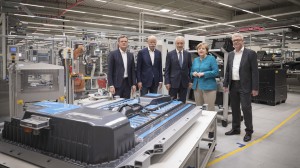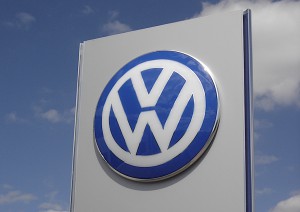Antitrust officials from Germany and investigators from the European Union have now searched the offices of Daimler, Volkswagen and BMW in what appears to be part of an investigation into collusion among German automakers.
The EU competition office said in back July that it was investigating a number of German carmakers it suspected conspired to fix prices in diesel and other technologies during the course of several decades. German carmakers have long been aggressive advocates of diesel technology.
The investigation has apparently gained momentum last week with Daimler disclosing that it had sought whistleblower status to avoid fines n the matter. At the same time, the authorities were searching through records at the BMW’s headquarters in the Munich.
Investigators this week were searching offices of Daimler and examining documents at Volkswagen’s headquarters in Wolfsburg and at its Audi offices in the city of Ingolstadt, spokespeople at Daimler and VW said.
(Feds approve fix for VW’s 3.0-liter diesels. For the story, Click Here.)
German magazine Der Spiegel reported in July that Volkswagen, its units Porsche and Audi, Daimler’s Mercedes and BMW may have used industry committee meetings to fix the size of tanks for AdBlue, a liquid used to treat nitrogen oxide in diesel emissions.
The EU probe represents another challenge for the German auto industry, which is still reeling from the fallout of VW’s diesel-cheating scandal as well as the rise self-driving vehicles and a push from regulators for cleaner electric cars.
Der Spiegel magazine reported that VW, Daimler and BMW met starting in the 1990s to coordinate activities related to vehicle technology, costs, suppliers and strategy as well as diesel emissions controls.
“The Volkswagen Group and the Group brands concerned have been cooperating fully and for a long time with the European Commission and have submitted a corresponding application” that might allow it to receive a reduction in any eventual fines, the company said in an email.
(Click Here for more about the collusion investigation.)
“It is not yet clear whether the European Commission will instigate formal proceedings.”
Regulators are concerned the companies may have violated antitrust rules, the EU said in a statement emailed mailed to news outlet. It didn’t name the manufacturers visited.
Daimler acknowledged the existence of a cartel as part of the EU’s leniency program that allows firms to dodge fines for being the first in line to report wrongdoing, Chief Financial Officer Bodo Uebber said last week.
It isn’t unusual for automakers to band together to research and development to hold down costs and in many cases its perfectly legal under the laws in both North America and Europe. General Motors and Ford, for example, jointly developed a new multi-speed automatic transmission that’s now being moved into production.
(BMW goes outside auto industry for marketing boss. Click Here for the story.)
But EU Competition Commissioner Margrethe Vestager said in September that her officials are checking whether “completely legal cooperation” between German car companies isn’t being confused with an illegal cartel. Illegal activity could revolve around price fixing on certain components and deliberately agreeing not to use certain technology.


